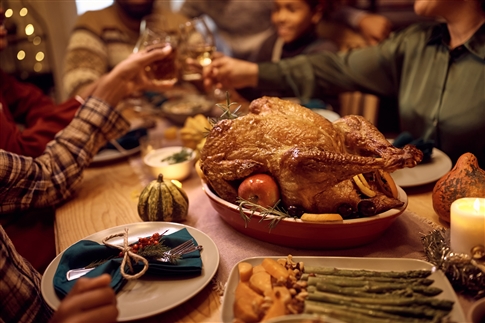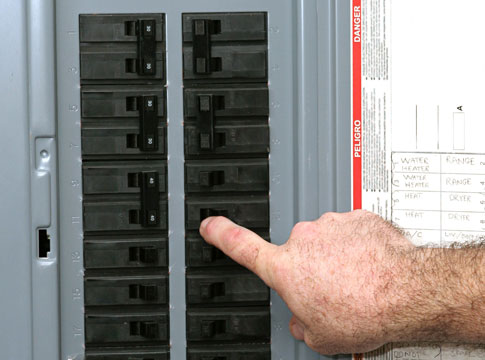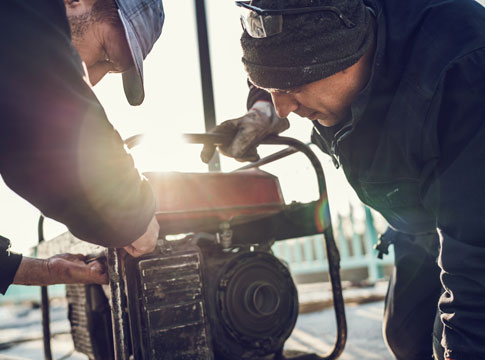Related News
Related News
-
EWEB Communications Win National Recognition for Public Power Excellence
We’re excited to share that EWEB has again been honored with two Excellence in Public Power Communications Awards from the American Public Power Association (APPA), earning top honors in both the Web/Social Media and Video categories.
Find Out More -
2025 rate update: Less than Initially Forecasted
While the costs of producing and delivering electricity and water are rising, EWEB is actively working to reduce the financial impact of rate increases in 2025.
Find Out More -
EWEB Launches 2024 Residential Customer Survey
EWEB has again partnered with professional research firm, GreatBlue Research, Inc., to conduct a survey of residential customers, starting October 30, 2024.
Find Out More -
EWEB Holds First Annual Truck-or-Treat Event at Roosevelt Operations Center
Hundreds of customer and crew families came together under sunny skies to gather candy and marvel at our fantastic fleet.
Find Out More -
Spill Drill 2024: EWEB & partners practice containing hazardous materials spills on McKenzie River
EWEB coordinates the drill as part of our work to protect the McKenzie River – the source of drinking water for more than 200,000 residents of the Eugene metro area.
Find Out More -
Imagine a Day Without Water 2024
Learn how you can prepare for an extended water outage.
Find Out More -
2024 Public Power Week Poster Contest
To celebrate Public Power Week, EWEB is held our annual poster contest for fifth graders in our service area. Help us choose the winners.
Find Out More -
Smart meters make UO move-in easier
Automatic move-in service order processing makes signing up for electric service easy for UO students and the entire Eugene community, while keeping utility vehicles off the road and lowering carbon emissions.
Find Out More -
EWEB to Mitigate 2025 Rate Increases to Reduce Customer Impacts
Amid a turbulent energy landscape and rising costs, EWEB has reduced projected rate increases for electricity and water in 2025.
Find Out More -
“We're just surrounded with people who are really helpful."
Michele Victor lost her home, septic system, and two cats to the fire. But thanks to EWEB's Septic System Repair and Replacement Grants, she is one step closer to rebuilding her home.
Find Out More -
EWEB Partners with the City and YMCA to Celebrate New Amazon Park Emergency Water Station Site
Hundreds of attendees practiced filling up water containers at Saturday's demonstration event.
Find Out More -
Salmon Watch program introduces next generation to their natural heritage on McKenzie River
It takes a village of watershed councils, teachers, and volunteers to bring hundreds of students to the water's edge to participate in their natural heritage.
Find Out More -
Source Water Protection Week: Our Commitment to Clean Water
EWEB celebrates our community's commitment to protecting the McKenzie River, the source of Eugene's drinking water.
Find Out More -
EWEB Communications Team Wins Top Awards at Northwest Innovations in Communications Conference
Competing against public utilities from across the region, EWEB brought home two significant awards in recognition of our work to engage and inform the community.
Find Out More -
September is National Preparedness Month: 3 tips to prepare your home & family
Let's "Be Ready" together!
Find Out More - Show More
Let's talk turkey. If a disaster strikes, is your family ready?
November 16, 2023 • Robyn Smith, EWEB Communications

Many of us avoid discussing politics over the dinner table in the spirit of family peace and harmony. But here's a topic that can bring everyone together: emergency preparedness.
Thanksgiving is a perfect time to make or refresh your emergency plans. As you pass around the turkey and the pumpkin pie, talk with your family about what you would do in an emergency such as an ice storm or other disaster. Developing a plan can help ensure your family's safety and comfort during a winter storm that could knock out the electricity or water for days or even longer.
Put together a plan by discussing these six questions with your family:
How will we receive emergency alerts and warnings?
Many mobile devices will now bring you wireless emergency alerts—real-time information directly from local and federal sources. Check out these alert options:
Lane Alerts – Lane Alerts allows fire, police, and other emergency response agencies to issue alerts to residents in the event of severe weather, fire, flooding, hazardous materials, need for immediate evacuation, civil danger, local area emergencies, and missing persons.
In the event of an emergency, alerts will be delivered to you at the contact information you provided, including telephone, text messages and email. Learn more about receiving emergency alerts.
ShakeAlert – Because Minutes Matter. – The ShakeAlert Earthquake Early Warning System, managed by the U.S. Geological Survey, detects significant earthquakes quickly enough so that alerts can be delivered to people potentially seconds before shaking arrives. The purpose of the system is to reduce the impact of earthquakes to save lives and property. Learn more about how to prepare for an earthquake.
FEMA Mobile App – Learn what to do before, during, and after emergencies with safety tips, and receive weather alerts from the National Weather Service.
Update your EWEB account – To avoid steps during a power outage, please make sure your current cell phone number(s) are tied to your EWEB account. Call Customer Service at (541) 685-7000 or email EWEB.Answers@eweb.org to update your account.
What is our shelter plan?
Depending on your circumstances and the nature of the emergency, it may be best to stay where you are and avoid any uncertainty outside by "sheltering in place." Do you have an emergency stock of food, water, medicines, fuel and other supplies? If you needed to leave home, where would you go? To a family member or friend's home? A hotel? A shelter? Where is the closest public shelter located? Consider your options and discuss with your loved ones in advance. Learn more about how to build an emergency preparedness kit.
What is our evacuation route?
In a natural disaster, some roads and bridges may be unpassable. It's smart to plan ahead for a few different route options to your shelter location. Keep a map in your car in case your mobile navigation is unavailable. Build an emergency plan and share it with family members.
What is our family communication plan?
In an emergency, many people trying to use their mobile phones and landlines at the same time may create network congestion. Have a conversation with your family and agree on a plan for how you will communicate and reconnect. Here are some tips to consider:
- Create an emergency text message group. In many cases, text messages will go through when your call may not. If you have an “Emergency Text Group” already on your phone, reaching your loved ones in an emergency will be easier.
- Designate someone who lives outside of the area as a central contact, and make certain all family members know who to contact if they become separated.
- Agree on a meeting place in case you cannot connect via phone, text, or email.
- Keep portable cell phone power banks in your car, backpacks, etc.
- Make sure each family member has a printed list of phone numbers in case your cell phones aren't working.
What is our plan for loved ones with special needs?
Customers dependent on power for special medical equipment should have a plan for power outages. Talk to your medical provider about a power outage plan for medical devices powered by electricity and refrigerated medicines. Find out how long medication can be stored at higher temperatures and get specific guidance for any medications that are critical for life.
How can we prepare for a power outage?
Winter is coming, which increases the likelihood of storm-related power outages. It's important to be prepared, and there are simple actions you can take right now.
- Consider purchasing a backup generator and make sure your loved ones know how to use it safely. Learn more about generator safety.
- Have enough nonperishable food and water. Keep freezers and refrigerators closed. The refrigerator will keep food cold for about four hours. A full freezer will keep the temperature for about 48 hours. Monitor temperatures with a thermometer. Throw out food if the temperature is 40 degrees or higher.
- Install carbon monoxide detectors with battery backup in central locations on every level of your home. Avoid carbon monoxide poisoning. Generators, camp stoves or charcoal grills should always be used outdoors and at least 20 feet away from windows. Never use a gas stovetop or oven to heat your home. Turn off or disconnect appliances, equipment, or electronics. Power may return with momentary surges or spikes that can cause damage.
- Stock up on batteries and power banks to recharge cell phones and other electronic devices.
- Buy a battery-powered radio to receive updates if the power is out for an extended period of time.
- Keep your fuel tanks full. If the power goes out, you may want to use your grill or camp stove for cooking, so ensure you have an adequate fuel supply on hand. It's also a good idea to keep your car's tank full since gas station fuel pumps rely on electricity. If you have an Electric Vehicle, charge it up ahead of predicted storms.
- Ensure you know how to manually open and close your garage door or park your car outside ahead of a winter storm.
Learn more about power outage resources, including how to report an outage, see outage updates, and what to do if you see a downed power line here.
And don't forget your emergency kit! EWEB has a 12-month Pledge to Prepare Campaign to help you build up your emergency kit, and you can sign up for a monthly emailed checklist here.
Related Programs
We regularly receive reports of power outages that are actually a tripped breaker on the customer's circuit panel. Checking your circuit panel before reporting an outage can save you hassle and money.



